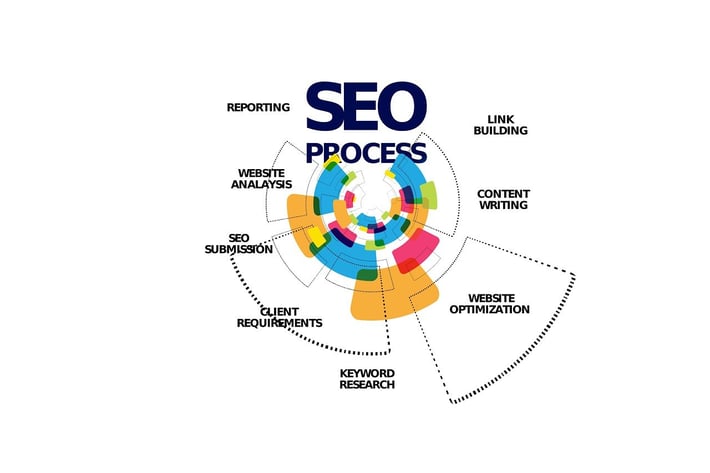Keyword Optimization: Get Your Business Showing On Search Engines
By Dean Sander on Mon, Dec 04, 2023 @ 12:00 PM

In today's digital landscape, content marketing has become a crucial strategy for businesses to attract and engage their target audience. However, creating great content is not enough. To ensure that your content gets maximum visibility and drives organic traffic, you need to optimize it with the right keywords. In this comprehensive guide, we will walk you through the process of keyword optimization for content marketing, from beginning to end. By implementing these best practices and strategies, you can enhance your website's visibility, improve search engine rankings, and attract more potential customers.

Understanding SEO Keywords
SEO keywords, often referred to simply as "keywords," are the words and phrases that people type into search engines like Google when they are looking for information, products, or services. These keywords play a crucial role in determining your website's visibility and ranking on search engine results pages (SERPs). By optimizing your web pages around the keywords your target audience is searching for, you can increase your chances of ranking higher and driving more organic traffic.
To find the right SEO keywords, you need to conduct keyword research. This process involves using various tools and methods to discover what your target audience is searching for, how competitive those keywords are, and how well they align with your content and goals. By understanding the search behavior and intent of your audience, you can choose the most relevant and valuable keywords to optimize your content.
Why Are Keywords Important in SEO?
Keywords are crucial in SEO because they serve as a bridge between what people are searching for and the content you provide. When users type keywords into a search engine, the search engine's algorithm searches webpages for common words and phrases related to those keywords. By incorporating relevant keywords into your content, you increase the likelihood of your webpages appearing among the top search engine results for users seeking content like yours. In other words, using the right keywords is vital to your SEO efforts.
Choosing the best keywords also helps you better target your audience. For example, if your target audience is people searching for the best running shoes to run a marathon, using the keyword "marathon running" wouldn't be the best choice. The top search results for that keyword are likely to be about marathon training, not shoes. Instead, you might use a different keyword phrase, such as "marathon shoes," to reach your target audience more effectively.
By ensuring that your keywords align with your content and the searcher's intent, you increase the chances that users who find your page in an organic search will stay on your page. This leads to a more effective content marketing strategy, higher conversion rates, and increased click-through rates (CTRs).
What Is Keyword Optimization?
Keyword optimization is the process of ensuring that the keywords you choose are effective in driving the right traffic to your website and ranking your site high enough for the right traffic to find it easily. The goal of keyword optimization is to make it clear to search engine algorithms what your content is about and which search queries should yield it as a top result.
Keyword optimization is not a one-time task. It may require ongoing optimization as search terms evolve and new content appears on the scene. The combination of keywords that once optimized your search status may change over time. Therefore, it is essential to stay updated and adapt your keyword strategy accordingly.
How to Optimize Keywords for SEO?
Optimizing keywords can be a challenging task, especially for those new to SEO. However, with the right tools and strategies, you can streamline the process and maximize your keyword planning. Here are six keyword optimization tips to help you improve your SEO efforts:
- Audit Your Current On-Page SEO
Before diving into keyword optimization, it's essential to assess your website's current on-page SEO. Conduct a thorough audit to identify areas for improvement. Review elements such as title tags, meta descriptions, header tags, URL structure, images, content quality, and internal and external links. Make sure these elements align with your keyword strategy and best practices for SEO.
- Find Keywords for Your Site
To find the most relevant keywords for your site, conduct keyword research. Start by brainstorming a list of keywords and phrases that are associated with your content and target audience. Use tools like Google Analytics, Google AdWords, or more advanced tools like Semrush's Keyword Research Toolkit. These tools provide insights into search volume, competition, and related keywords, allowing you to narrow down your choices effectively.
- Map Your Keywords
Keyword mapping is a crucial step in organizing your keyword strategy. Once you have a list of relevant keywords, analyze each keyword and map out which page on your website it should be optimized for. The goal is to distribute keywords across your website strategically, avoiding keyword stuffing or using the same set of keywords on every page. Consider the content of each page and align the keywords accordingly.
- Add Keywords to Your Site
After mapping your keywords, it's time to incorporate them into your content. Ensure that your chosen keywords are naturally integrated into your website's content, including titles, headers, subheadings, meta descriptions, URLs, and image tags. However, be cautious of keyword stuffing, which involves overusing keywords to the point where it diminishes the quality of the content. Search engines have become sophisticated in detecting and penalizing keyword stuffing, so focus on quality content rather than excessive keyword usage.
- Avoid Keyword Stuffing
Keyword stuffing is a black-hat SEO technique that involves cramming a webpage with excessive keywords in an attempt to manipulate search engine rankings. This practice is highly discouraged as it not only leads to poor user experience but also risks penalties from search engines. Instead, focus on creating high-quality content that is valuable to your audience and naturally incorporates relevant keywords.
- Don't Forget Your Target Audience
While optimizing keywords is crucial for SEO, it's essential to remember your target audience throughout the process. Ensure that your keywords align with the search terms and intent of your target audience. Consider what your audience is looking for and adjust your keyword strategy accordingly. By delivering content that matches their needs and interests, you can attract and retain the right audience.
Implementing a Hub and Spoke Strategy
A hub and spoke strategy is an effective approach to keyword optimization for content marketing. It involves creating a cluster of content around a seed keyword, using high-value keywords to create a pillar page, secondary keywords to create sub-pages, and lower-level keywords for blogs. This strategy allows you to establish your website as a comprehensive resource on a specific topic, improve search engine rankings, and attract a wider audience.
Step 1: Identify a Seed Keyword
To begin implementing a hub and spoke strategy, start by identifying a seed keyword. This keyword should be broad enough to cover a wide range of related topics but specific enough to target your audience. Conduct keyword research to find a seed keyword that aligns with your content and has a significant search volume.
Step 2: Create a Pillar Page
The next step is to create a pillar page around your seed keyword. The pillar page serves as the central hub of information for your chosen topic. It should provide a comprehensive overview of the subject, covering all essential aspects and linking to related sub-pages and blog posts.
When creating your pillar page, focus on providing high-quality, in-depth content that satisfies the search intent of your target audience. Use your seed keyword strategically throughout the page, including in headings, subheadings, and body text. Incorporate relevant images, videos, and infographics to enhance the user experience.
Step 3: Develop Sub-Pages
Once you have your pillar page in place, it's time to develop sub-pages that dive deeper into specific aspects of the topic. Each sub-page should focus on a secondary keyword related to your seed keyword. These sub-pages should provide detailed information, examples, case studies, and actionable tips that cater to the specific search intent of users.
Link each sub-page back to the pillar page to establish a hierarchical structure within your website. This internal linking strategy helps search engines understand the relationship between your content and improves the overall visibility of your website.
Step 4: Create Supporting Blog Posts
To further strengthen your hub and spoke strategy, create supporting blog posts that target lower-level keywords related to your seed keyword. These blog posts should provide additional insights, answer specific questions, and address niche aspects of the topic. By consistently publishing high-quality blog content, you can attract a wider audience and establish your website as an authoritative source of information.
Incorporate internal links within your blog posts to connect them to the pillar page and relevant sub-pages. This internal linking strategy helps search engines navigate your website and improves the overall user experience.
By implementing a hub and spoke strategy, you can create a comprehensive content cluster that covers a wide range of topics related to your seed keyword. This approach improves your website's visibility, allows you to target a broader audience, and enhances the overall SEO performance of your content.
Tracking and Measuring Your Keyword Optimization Efforts
To ensure the effectiveness of your keyword optimization efforts, it is crucial to track and measure your results. By monitoring key metrics and analyzing data, you can identify areas for improvement and make informed decisions to optimize your keyword strategy further.
One of the most important metrics to track is your search engine rankings for target keywords. Tools like Semrush's Position Tracking can help you monitor your rankings and provide alerts for significant changes. Regularly check your rankings to see if your optimization efforts are paying off or if adjustments are needed.
Additionally, analyze other metrics such as organic traffic, click-through rates (CTRs), conversion rates, and bounce rates to gain a comprehensive understanding of your content's performance. Use tools like Semrush's Organic Traffic Insights to gather data from multiple sources and gain insights into user behavior.
Based on the data you collect, adapt and refine your keyword strategy accordingly. Focus on optimizing content that performs well and consider adjusting your targeting for keywords that are not delivering the desired results. Continuously monitor and measure your efforts to ensure your keyword optimization strategy remains effective and aligned with your business goals.
Crafting an Effective Content Strategy for Marketing Success
Keyword optimization is a vital component of content marketing and SEO. By implementing the strategies and best practices outlined in this guide, you can enhance your website's visibility, attract more organic traffic, and ultimately drive conversions. Remember to conduct thorough keyword research, map your keywords strategically, and create high-quality content that aligns with the search intent of your target audience. By adopting a hub and spoke strategy, you can create a comprehensive content cluster that establishes your website as an authoritative resource on your chosen topic. Regularly track and measure your keyword optimization efforts to ensure continued success. With a well-executed keyword optimization strategy, you can propel your content marketing efforts to new heights and achieve your business goals.
Ready to take your content strategy and keyword optimization to the next level? Contact Broadvision Marketing today and let our team of experts help you craft a winning strategy for marketing success. With our proven techniques and industry insights, we'll ensure that your website not only attracts more organic traffic but also drives conversions. Don't miss out on the opportunity to establish your website as an authoritative resource in your industry. Reach out to Broadvision Marketing now and achieve your business goals faster than ever before.
You May Also Like
These Related Stories

On-Page Optimization for Local SEO: Best Practices for Your Website

Content Marketing And Nonprofits: A Great Combination

.png?width=302&height=75&name=BVM%20Logo%20-%20transparent%20(1).png)




No Comments Yet
Let us know what you think